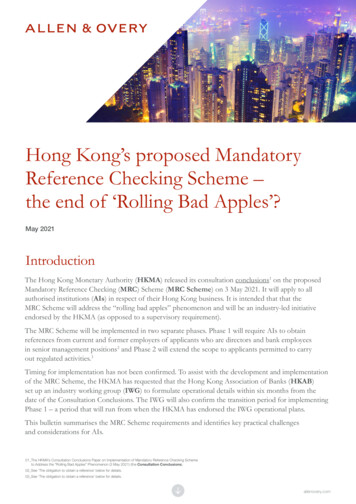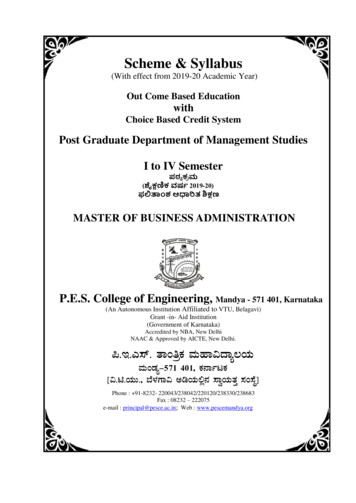
Transcription
Scheme & Syllabus(With effect from 2019-20 Academic Year)Out Come Based EducationwithChoice Based Credit SystemPost Graduate Department of Management StudiesI to IV Semesterಪಠ್ಯ ಕ್ರ ಮ(ಶೈಕ್ಷಣಿಕ್ ವರ್ಷ 2019-20)ಫಲಿತಾಂಶ ಆಧಾರಿತ ಶಿಕ್ಷಣMASTER OF BUSINESS ADMINISTRATIONP.E.S. College of Engineering, Mandya - 571 401, Karnataka(An Autonomous Institution Affiliated to VTU, Belagavi)Grant -in- Aid Institution(Government of Karnataka)Accredited by NBA, New DelhiNAAC & Approved by AICTE, New Delhi. .E.J ï. vÁAwæPÀ ªÀĺÁ«zÁå AiÀĪÀÄAqÀå-571 401, PÀ ÁðlPÀ[«.n.AiÀÄÄ., ɼÀUÁ« CrAiÀÄ è À ÁéAiÀÄvÀÛ ÀA ÉÜ]Phone : 91-8232- 220043/238042/220120/238330/238683Fax : 08232 – 222075e-mail : principal@pesce.ac.in; Web : www.pescemandya.org
PrefacePES College of Engineering, Mandya, started in the year 1962, has becomeautonomous in the academic year 2008-09. Since, then it has been doing the academic andexamination activities successfully. The college is running Eight undergraduate and SevenPostgraduate programs. It consists of Five M.Tech programs, which are affiliated to VTU.Other postgraduate programs are MBA and MCA.India has recently become a Permanent Member by signing the Washington Accord.The accord was signed by the National Board of Accreditation (NBA) on behalf of India on13th June 2014. It enables not only the mobility of our degree globally but also establishesequivalence to our degrees with that of the member nations such as Taiwan, Hong Kong,Ireland, Korea, Malaysia, New Zealand, Russia, Singapore, South Africa, Turkey, Australia,Canada and Japan. Among other signatories to the international agreement are the US and theUK. Implementation of Outcome Based Education (OBE) has been the core issue forenabling the equivalence and of Indian degrees and their mobility across the countries.Our Higher Educational Institution has adopted the CBCS based semester structurewith OBE scheme and grading system.The credit based OBE semester system provides flexibility in designing curriculumand assigning credits based on the course content and hours of teaching.The OBE, emphasize setting clear standards for observable, measurable outcomes ofprograms in stages. There lies a shift in thinking, teaching and learning processes movingtowards Students Centric from Teacher Centric education. OBE standards focus onmathematics, language, science, attitudes, social skills & moral values.The key features which may be used to judge, if a system has implemented anoutcome based education system is mainly Standard based assessments that determineswhether students have achieved the stated standard. Assessments may take any form, so longas the process actually measure whether the student knows the required information or canperform the required task. Outcome based education is a commitment that all students of allgroups will ultimately reach the same minimum standards. Outcome Based Education is amethod or means which begins with the end in mind and constantly emphasizes continuousimprovement.Choice Based Credit System (CBCS) provides choice for students to select from theprescribed courses (core, Foundation, Foundation Elective, elective, open elective and minoror soft skill courses). The CBCS provides a ‘cafeteria’ type approach in which the studentscan Choose electives from a wide range of courses of their choice, learn at their own pace,undergo additional courses and acquire more than the required credits, adopt aninterdisciplinary approach to learning which enables integration of concepts, theories,techniques, and, perspectives from two or more disciplines to advance fundamentalunderstanding or to solve problems whose solutions are beyond the scope of a singlediscipline. These greatly enhance the skill/employability of students.In order to increase the Industry/Corporate readiness, many Soft Skills and PersonalityDevelopment modules have been added to the existing curriculum of the academic year2019-20. Computer laboratory have been made compulsory to enhance the management skillsthrough computers. In order to enhance creativity and innovation, Project and corporatecommunication are included in the curriculum.Dr. Umesh D RDeputy Dean (Academic)Associate Professor,Dept. of CS & EnggDr. NagarathnaDean (Academic)ProfessorDept. of CS & Engg
VISION“An institution of high repute, imparting quality education to develop innovative andHumane engineers”MISSION“Committed to develop students potential through high quality teaching-learning processesand state of the art infrastructure”Post Graduate Department of Management StudiesThe Post Graduate Department of Management Studies was started during the year 2009 with60 intake. It comprises of well-experienced qualified faculty members from Industry &Academia to impart latest information to students & train them to meet the liberalized andglobalized market demand.VISION“Centre for pursuing Business Management by Developing Best Leadership through bestPedagogical methods.”MISSION To create an ambience for Creative & Innovative Learning To develop Self Confident & Self Reliant Leaders for future To impart Business Acumen with Right Values & CultureMASTER OF BUSINESS ADMINISTRATIONProgram Objectives1. To help and enable the students to acquire knowledge, skills in different verticals ofBusiness management practices.2. To help and enable the students to apply such knowledge to different business areasand develop solution for betterment of business in the most ethical manner.3. To help and enable the students to develop overall personality to execute their skills.Program outcomes1. The Students are able to exhibit fundamental and basic knowledge of BusinessManagement to solve the practical problems in business in systematic manner.2. The Students are able to identify and develop strategies for better practices forbetterment of business in the most ethical manner.3. The Students are able to communicate effectively in the organization with confidenceand contribute to exchange of ideas, skills and enhance learn ability within theorganization.4. The Students will exhibit healthy and self-sustainable leadership and entrepreneurqualities that encourages taking decisions on the basis of calculated risk and enhancethe competitive advantage of the organization.3
5. The Students will be acquainted with need of research and development to realize andaddress the growing complexities of the business environment.Credit patternCore Courses - I Semester 07 with 22 creditsII Semester 07 with 22 creditsIII Semester 02 with 06 creditsIV Semester 02 with 06 creditsTotal credits for core courses is 56 creditsElective Course-III Semester 12 creditsIV Semester 12 creditsTotal credits for elective courses is 24 creditsLab- I Semester 02 with 02 creditsII Semester 02 with 03 creditsIII Semester 01 with 02 creditsTotal credits for lab courses is 07 creditsSeminar I Semester 01 creditsProject work-12 creditsA total of 100 credits for 2 years MBA programmeAn overview of credit distribution for MBA programme 2019-21Sl.CoursesCredits per courseTotal No. of creditsNo.1. I Semester – 09 course06 core course0301 core course042501 Lab0201 Seminar012. II Semester – 09 course06 core course0301 core course0401 Lab022501 Lab013. III Semester – 02 core course0304 elective course0301 Lab02204. IV Semester – 02 core course0304 elective course0301 Project Evaluation0801 Project Viva Voce0430Total1004
P E S College Of Engineering, Mandya(An Autonomous Institution under VTU, Belgaum)POST GRADUATE DEPARTMENT OF MANAGEMENT STUDIESScheme of Teaching & ExaminationMaster of Business Administration (M B A) 2019FIRST SEMESTERSLNO123456789COURSECODECOURSEP19MBA11 Accounting for ManagersP19MBA12 Marketing ManagementManagement Fundamentals &P19MBA13 Organizational BehaviourManagement InformationP19MBA14 SystemP19MBA15 Business AnalyticsP19MBA16 Business EconomicsP19MBA17 Business CommunicationEffective CommunicationP19MBA18 Development (ECD)*P19MBA19 Socially Relevant 50504005040010050850CIE- Continuous Internal EvaluationL-Lecture, T-Tutorial, P-Practical, Hours-H5
SECOND A29COURSEFinancial ManagementQuantitative TechniquesHuman Resource ManagementBusiness Research MethodsInternational BusinessManagementWork Place EthicsCorporate CommunicationComputer Lab 1Professional CommunicationDevelopment 45050400100850CIE- Continuous Internal EvaluationL-Lecture, T-Tutorial, P-Practical, Hours-H6
THIRD SEMESTERSLNO1234567COURSE CODEP19MBA31P19MBA32P19MBA33P19MBA EL 1P19MBA EL 2P19MBA EL 3P19MBA EL 4COURSESupply Chain ManagementProject ManagementComputer Lab 2Elective 1Elective 2Elective 3Elective 5035010010050100100100100750CIE- Continuous Internal EvaluationL-Lecture, T-Tutorial, P-Practical, Hours-HFINANCIAL MANAGEMENTP19 MBA EL 1 P19 MBA 3F1 Financial Services and Banking PracticesP19 MBA EL 2 P19 MBA 3F2 Mergers, Acquisitions and Corporate RestructuringP19 MBA EL 3 P19 MBA 3F3 Advanced Financial ManagementP19 MBA EL 4 P19 MBA 3F4 Investment ManagementMARKETING MANAGEMENTP19 MBA EL 1 P19 MBA 3M1 Consumer BehaviourP19 MBA EL 2 P19 MBA 3M2 Rural MarketingP19 MBA EL 3 P19 MBA 3M3 Industrial MarketingP19 MBA EL 4 P19 MBA 3M4 Service MarketingHUMAN RESOURCE MANAGEMENTP19 MBA EL 1 P19 MBA 3H1 Organization Structure, Process & DesignP19 MBA EL 2 P19 MBA 3H2 Legal Environment & Industrial LegislationP19 MBA EL 3 P19 MBA 3H3 Team Development & LeadershipP19 MBA EL 4 P19 MBA 3H4 Strategic Human Resource Management7
Marketing Management& FinancialManagementMBA 3M1 ConsumerBehaviourDUAL SPECIALIIZATIONMarketing Management &Human ResourceManagementMBA 3M1 ConsumerBehaviourMBA 3M2 RuralMarketingMBA 3M2RuralMarketingMBA 3F1MBA 3H1OrganizationStructure,Process &DesignLegalEnvironment &IndustrialLegislationMBA 3F2FinancialServices eRestructuringMBA 3H2Financial Management &Human ResourceManagementMBA 3F1FinancialServices andBankingPracticesMBA 3F2Mergers,Acquisitionsand CorporateRestructuringMBA 3H1 OrganizationStructure,Process &DesignMBA 3H2 LegalEnvironment &IndustrialLegislation8
FOURTH BA43P19MBA44P19MBA EL 1P19MBA EL 2P19MBA EL 3P19MBA EL 4COURSEEntrepreneurshipDevelopmentStrategic ManagementProject EvaluationProject Viva VoceElective 1Elective 2Elective 3Elective 84333330EXAMINATIONMARKSCIE SEE 0100100100100850CIE- Continuous Internal EvaluationL-Lecture, T-Tutorial, P-Practical, Hours-HFINANCIAL MANAGEMENTP19 MBA EL 1 P19 MBA 4F1 Portfolio ManagementP19 MBA EL 2 P19 MBA 4F2 Financial DerivativesP19 MBA EL 3 P19 MBA 4F3 International Financial ManagementP19 MBA EL 4 P19 MBA 4F4 Tax ManagementMARKETING MANAGEMENTP19 MBA EL 1 P19 MBA 4M1 Retail ManagementP19 MBA EL 2 P19 MBA 4M2 Strategic Brand ManagementP19 MBA EL 3 P19 MBA 4M3 Integrated Marketing CommunicationP19 MBA EL 4 P19 MBA 4M4 International Marketing ManagementHUMAN RESOURCE MANAGEMENTP19 MBA EL 1 P19 MBA 4H1 International Human Resource ManagementP19 MBA EL 2 P19 MBA 4H2 Organizational Change & DevelopmentP19 MBA EL 3 P19 MBA 4H3 Training & DevelopmentP19 MBA EL 4 P19 MBA 4H4 Personal Growth & Inter personal Effectiveness9
Marketing Management& FinancialManagementMBA 4M1 RetailManagementMBA 4M2 StrategicBrandManagementMBA 4F1 PortfolioManagementMBA 4F2FinancialDerivativesDUAL SPECIALIIZATIONMarketing Management &Human ResourceManagementMBA 4M1 RetailManagementMBA 4M2 Strategic BrandManagementFinancial Management &Human ResourceManagementMBA 4F1PortfolioManagementMBA 4F2FinancialDerivativesMBA 4H1InternationalHuman ResourceManagementMBA 4H1MBA 4H2OrganizationalChange &DevelopmentMBA nalChange &Development10
FIRST SEMESTERACCOUNTING FOR MANAGERSCourse Code: P19MBA 11SEE: 50 MarksExam Duration: 03 HoursCIE : 50 MarksCredit Pattern: L:T:P:H 4:0:0:4 3No. of Hours per Week: 3 1 4Total Numbers of Hours: 52Course Objectives:1. To make students understand the basic accounting equation and accounting principlesand making them understand the process of preparation of financial statements.2. To expose students to tools and techniques of financial statement analysis.3. To equip student’s with the ability to analyze and understand company’s financialsituation4. To expose students to fundamentals of cost and variable costing5. To expose student to practical situations involving several cases in order to apply thetheoretical concepts in developing suitable strategies for better practices in decisionmaking and cost control.Course Outcomes:1. Student will be able to exhibit theoretical knowledge of accounting and apply same inreal time business world.2. Student will be able to understand the accounting principle and standard and itsapplication.3. Students are able to prepare Financial Statements and interpret the results there off.4. student will be able to demonstrate the understanding of fundamentals of cost andvariable costing5. Student will be able to apply concepts learnt to demonstrate the ability to drawmeaningful conclusions about the financial performance of business firms andcompanies.Module 110 HoursBasics of Accounting: Introduction to Accounting, Accounting Equations, AccountingPrinciples (Conventions and Concepts), Users of Accounting and Accounting disclosures,IFRS and Accounting Standards.Problems on Basic Accounting Equation, Journal, Ledger, Subsidiary Books (PurchasesBook, Purchases Returns Book, Sales Book, Sales Returns Book, and Three columnar CashBook), Preparation of Trail Balance(13-130, Text Book 1)Module 216 HoursPreparations of Financial Statement: Problems on Preparations of final accounts of soletrading concern and companies (excluding partnership) including both horizontal and verticalformat.(131-173 Text Book 2)Analysis of Financial Statements -Ratio Analysis: Analysis of Financial performance of afirm through Ratio analysis – Liquidity ratios, Leverage ratios, Activity ratio and Profitabilityratios - Inter firm and Intra firm comparisons and Do Pont analysis.Problems on Ratio analysis(235-269, Text book 2)11
Module 310 HoursAnalysis of Financial Statements- Fund Flow and Cash Flow Statement: Fund flowstatement and Cash flow statement – meaning and concepts, applications.Problems on Preparations of Fund Flow and Cash flow statement (AS3) (174-234, Text book2)Module 46 HoursDepreciation Accounting- Meaning, Causes, Methods of Depreciation, and Myths ofDepreciation.Problems on Straight line method, Written Down method, and Change in Depreciationmethod.Emerging issues on Accounting: Human Resource Accounting, Forensic Accounting,Sustainability Reporting.Module 510 HoursCost Management: Cost Overview- concept & classification of costs- cost analysis formanagement decision making.Problems on Preparation of Cost Sheets (simple problems to understand the different headsof Cost Sheet).Variable costing: Concept of variable (Marginal) costing, advantage of variable costing.Cost-volume – profit (CVP) Relationship: Profit planning- behavior of expenses in relation tovolume. CVP model- sensitivity analysis of CVP Model for changes in underlyingparameters- assumptions of the CVP Model- Utility of the Model in Management DecisionMaking (only theory).Problems (Simple) on BEP analysis including Margin of Safety and Profit planning.Practical Components: Students have to collect the annual reports of Sole trader or Companies and present areport on the financial position after reading the director’s, auditor’s report Students have to analyze the cash flow statement of the Companies and report on thecash position of the organization as per the Final account and Cash flow statement andgive their understanding of the importance of cash flow statement on its basis Students have to interpret the relationship of various of ratios on the basis of Du pontanalysis of any company and report on its financial strengthRelated case studies to be discussedText Books1. Financial accounting a managerial perspective – R. Narayanaswamy – PHI, 6/e, 20172. Accounting Theory and Practice – Dr. Jawahar Lal – Himalaya Publishing House –4/e, 20173. IFRS: A Practical Approach, Jasmine Kaur, McGraw Hill.References S.N. Maheshwari & S.K. Maheshwari – Introduction to Accountancy – VikasPublications,11/e, 201312
Introduction to Financial Statement Analysis – Ashish K Bhattacharya, Elsevier India Financial Accounting (IFRS update)– Gary A. Porter & Curtis L. Norton, 6/e,Cengage Learning. Essentials of Financial Accounting (Based on IFRS), Bhattacharya,3/e, Prentice HallIndia.CO-PO MAPPINGPOPO2PO333COPO1PO43CO132CO233CO332CO43-High correlation, 2-Average correlation, 1-Low correlationPO5113
MARKETING MANAGEMENTCourse Code: P19MBA 12SEE: 50 MarksExam Duration: 03 HoursCIE : 50 MarksCredit Pattern: L: T:P:H 4:0:0:4 3No. of Hours per Week: 3 1 4Total Numbers of Hours: 52Course Objectives:1. To know the students on the cutting edge of knowledge in making strong andactionable recommendations to managements in the field of marketing.2. To provide basic understanding of fundamentals of marketing management, consumerbehaviour and the bases of market segmentation.3. To provide a basic concepts of pricing strategies and channel of distribution.4. To provide practical framework for strategic planning and controlling of marketingcommunication programs.Course Outcomes:1. Appreciate the challenges required for effective marketing management2. Understand and apply the tools and techniques used in marketing management3. Anticipate marketing and sales problems and issues common in the modernworkplace.4. Increase overall knowledge of marketing management concepts and practices.Module 112 HoursMarketing for the New Realities: The value of marketing, The Scope ofmarketing– products, services and experiences etc. Value and satisfaction, Impressions andengagement and transactions and relationships. Company orientation toward themarketplace, The marketing environment: The company’s microenvironment, Thecompany’s macro environment, The marketing research process and marketinginformation systemBuying Behaviour Analysis: Consumer Markets: Models of consumer behaviour,Characteristics affecting consumer behaviour, Consumer decision process, Types of buyingdecision behaviour, The buyer decision making process, The buyer decision process for newproducts. Business Markets: Characteristics of business markets. Buying behaviour ofbusiness market, Consumer buying behaviour Vs Business buying behaviour(Marketing Management- Kotler &Keller, Chapter 1, 4, 5, 6 & 7 Pg 3,101,135,165 & 201)Module 210 HoursMarket Segmentation, Targeting, PositioningMarket segmentation: Levels of market segmentation, Segmenting consumer markets,Segmenting business markets, Developing market segments, Requirements for effectivesegmentation, Market targeting, Segment strategy, Differentiation, Differentiating markets,Product positioning, Positioning strategies, Selecting the right competitive advantages,Communicating and delivering the Market Segmentation, Targeting, PositioningMarket segmentation: Levels of market segmentation, Segmenting consumer markets,Segmenting business markets, Developing market segments, Requirements for effectivesegmentation, Market targeting, Segment strategy, Differentiation, Differentiating markets,Product positioning, Positioning strategies, Selecting the right competitive advantages,14
Communicating and delivering the chosen position. (Marketing Management- Kotler &keller,Chapter 9,10 & 11 Pg 265, 297 & 323)Module 310 HoursProduct and Branding: Define product. Levels of product, Product classifications.Packaging / Labeling: Packaging as a marketing tool, requirement of good packaging, Role oflabeling in packaging, Product decisions, Branding strategy, Brand equity, Managing brands,New-product development and product life-cycle strategies: Innovation and new-productdevelopment strategy, New-product development process. Organizing for new-productdevelopment. Product life-cycle strategies.Marketing services: Defining services, Nature and characteristics of a service and theservice marketing mix,Pricing Decisions: Define price. Factors to consider when setting prices, internal factorsaffecting pricing decisions,External factors affecting pricing decisions, General pricing approaches, Cost-based pricing,Value based pricing, Competition-based pricing, New-product pricing strategies, Marketskimming pricing, market-penetration pricing, Product-mix pricing strategies, Priceadjustment strategies, Psychological pricing, Promotional pricing, Geographical pricing,Price changes. (Marketing Management- Kotler & Keller, Chapter 13, 14, 15 & 16 Pg395,431, 463 & 499)Module 410 HoursManaging Marketing Channels: Supply chains and the value delivery network, The natureand importance of marketing channels, How channel members add value, Selecting channelmembers, Managing and motivating channel members, Evaluating channel members.Conflict, cooperation & Competition. E-commerce and M-commerce marketing practices,Managing retailing and wholesalingPromotion: Integrated marketing communication strategy, The changing communicationsenvironment, The need for integrated marketing communications. A view of thecommunication process, Steps in developing effective communication. Setting the totalpromotion budget and mix. Socially responsible marketing communication.Advertising: Important decisions in advertising, Setting advertising objectives, Setting theadvertising budget, Developing advertising strategy, Evaluating advertising Sales promotion:Rapid growth of sales promotion, Setting sales promotion objectives, Major sales promotiontools, Developing the sales promotion programme. Events and experiences.Public relations: The role and impact of public relations, Major public relations toolsIntroduction to digital marketingOnline marketplace analysis: microenvironment, The Internet macro-environmentIntroduction to social media Channels: key terms and concepts, traditional media, Socialmedia channels. (Marketing Management- Kotler & Keller, Chapter 17, 18, 19, 20, 21 & 22Pg 535, 567, 599, 621, 647 & 685)Module 510 HoursDeveloping Marketing Strategies and PlansMarketing and customer value, corporate and division Strategic planning, business unitstrategic planningMarketing Planning: Meaning, Concepts of Marketing plan, Steps involved in planning.Marketing Organisation: Factors influencing the size of the marketing organization, varioustypes of marketing structures/organisation15
Marketing Audit: Meaning, Features of marketing audit, various components of marketingaudit. (Marketing Management, Kotler & Keller, Chapter 2 Pg33) (MarketingManagement, Dr. K. Karunakaran, Chapter 16, Pg 239)Practical Components:Marketing Games and quiz for Students. Analyse Product Life Cycle of few Products like-Electronic goods, Computers etc. Study Packaging strategies used by FMCG companies. Understand Marketing strategies, plans used by automobile, cosmetic, FMCGcompanies etc.Case Studies in Indian Context onlyText Books1. Philip Kotler & Kevin Lane Keller, Marketing Management, Pearson, 15th Edition,2016.2. Philip Kotler, Armstrong, Principles of Marketing, Pearson Education, 12th Edition.3. Digital Marketing: Strategy, implementation and practice, Chaffey D., ElliisChadwick, 5th Edition, F., Pearson, 2012References Lamb, Hair, Mc Danniel, Marketing, Thomson, 7th Edition, 2004. Evans & Berman, Marketing, Biztantra, 2nd Edition,2005. William M Pride, O C Fewell, Marketing – Concepts, strategies,Biztantra, 12th Edition, 2005. Ramaswamy&Namakumari, Marketing Management, Macmillan, 2005. Arun Kumar &Meenakshi, Marketing Management, Vikas, 2007. Tapan Panda, Marketing Management, Excel Publication, 2nd Edition. Dr. K. Karunakaran, Marketing Management (Text & Cases in Indian Context), HPH,2007. RajanSaxena, Marketing Management, TMH Publication, 3rd Edition. R Srinivasan, Case studies in Marketing – The Indian context, 5th Edition, PHI, 2012.Recommended Books Marketing Management: A South Asian Perspective–Kotler, Keller, Koshy & Jha, 14/e, Pearson Education, 2012. Marketing- Lamb, Hair, Mc Danniel, 7/e, Cengage Learning 2012. Marketing Management, Tapan Panda, 2/e, Excel Publication.COCO1CO-PO MAPPINGPOPO1PO2PO33PO4PO51CO23CO322CO4323-High correlation, 2-Average correlation, 1-Low correlation16
MANAGEMENT FUNDAMENTALS & ORGANIZATIONAL BEHAVIORCourse Code: P19MBA 13SEE: 50MarksExam Duration: 03 HoursCIE : 50 MarksCredit Pattern: L: T: P:H 4:0:0:4 3No. of Hours per Week: 3 1 4Total Numbers of Hours: 52Course Objectives:1. To make students understand fundamental concepts and principles of management,including the basic roles, skills, and functions of management.2. To make students knowledgeable of historical development, theoretical aspects andpractice application of managerial process.3. To understand the basic concepts and theories underlying individual behaviourbesides developing better insights into one’s own self.4. To make students aware of Individual behaviour in groups, dynamics of groups andteam building besides developing a better awareness of how they can be betterfacilitators for building effective teams as leaders themselves.Course Outcomes:1.Demonstrate their conceptual skills understanding and application of principles andfunctions of management and to enable students basic understanding of dynamics of OB2. Evaluate the global context for taking managerial actions of planning, Organizing andControlling and application of concepts of planning like MBO and Managerial decisionmaking.3. The Student will demonstrate ability to analyze predicting and to control behaviour ofpeople at work for organization effectiveness.4. Students to develop leadership skills and ability to motivate and work in groups toachieve organizational goals.5. Understand and demonstrate their exposure towards growing complexities and recenttrends in management.Module 110 HoursManagement Development : Management as a process of achieving objectives through thefunctions of planning, organizing, co-coordinating, directing and controlling; P34-37Mintzberg interpersonal, informational and decisional roles; P33-34 , levels of management;P38-39 Evolution of Management Thought : Scientific Management and the work of F WTaylor; P58-62 Administrative Management and Henry Fayol; P62-67,Max Weber’s IdealBureaucracy; P56-58 The Hawthorne Studies;P71-76 McGregor’s Theory X and Y ;P577578, Recent Trends in Management.Module 210 HoursManagement Functions: All the Functions of Management & its Processes: Planning, P111128 Organizing, P291-301 Co-coordinating, P97-106 Directing P541-545 And controllingfunctions; P711-724, decision making, process of decision making, types of decisions,techniques in decision making. The External Environment and Primary Stakeholders; P194209 SWOT and PEST Analysis; P195, P94-20917
Module 38 HoursMission and Policy Statements; P142-144, P191, P168-174, Management by Objectives(MBO); P150-158; P128 Strategy and the Strategic Process; P215-245.Management Structure: Forms of Organization .Organization structures: line, line and staff:P435-450. Functional P439-441 Divisional and Matrix P330-345; Virtual organization,Boundary less organization, Span of control: organizational charts; the concepts of authority:P298-299 P294, 396,& P399,426. Centralization and decentralizations: P64, 418Module 412 HoursOrganizational Behavior: Introduction, definition, contributing disciplines, challenges andopportunities, Basic OB Model (PGA1-30) Foundations of Individual Behavior: Individualbehavior: Foundations of individual behavior. Ability: Intellectual abilities, Physical ability.Values: Nature & Types of values. Attitude: Formation, components of attitudes, relation.Job related attitude. (PGA77-86), Perception: Process of perception, factors influencingperception, Perceptual Process (PA 59-66).Personality: Meaning, formation, determinants.Major Personality Attributes Influencing OB (PGA 42-45)Module 512 HoursMotivation: Importance of motivation Motivational factors Meaning, theories of motivation–Maslow’s needs theory, two factor theory, Theory X and Y. Applications for motivatingemployees (Text Book 2 SPB Pg 1193)Leadership: Meaning, types of leadership stylesautocratic, democratic, laissez faire, parentalistic, Transactional and TransformationalLeadership (Shane366-372)Group Behavior: Definition, types, formation of groups.Determinants of group behavior (Shane 275-321)Organizational Change: Concept, resistance to change, managing change. OrganizationalPower & PoliticsCase Analysis: Compulsory question for 20 Marks. Discussed from Module 1 to Module 5Practical Component: Studying organizational structures of any 10 companies and classifying them intodifferent types of organizations and justifying why such structures are chosen bythose organizations. Preparing the leadership profiles of any 5 business leaders and studying theirleadership qualities and behaviors with respects to the trait, behavioural andcontingency theories studied. Identifying any five job profiles and listing the various types, abilities required forthose jobs
Scheme & Syllabus (With effect from 2019-20 Academic Year) Out Come Based Education . MASTER OF BUSINESS ADMINISTRATION P.E.S. College of Engineering, Mandya - 571 401, Karnataka (An Autonomous Institution Affiliated to VTU, Belagavi) Grant -in- Aid Institution . Marketing MBA 3M2 Rural Marketing MBA 3F2 Mergers, Acquisitions and Corporate

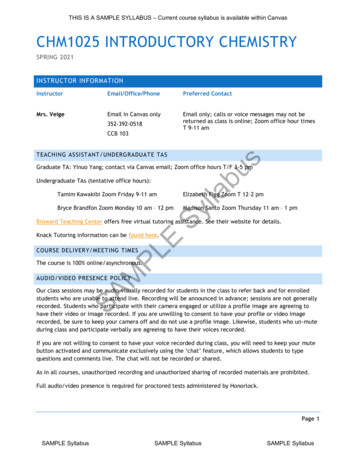
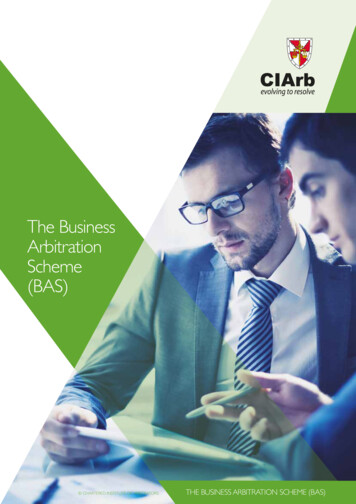
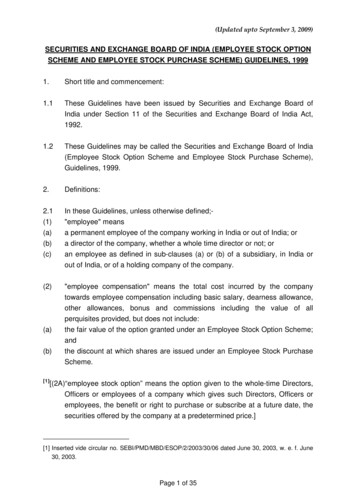

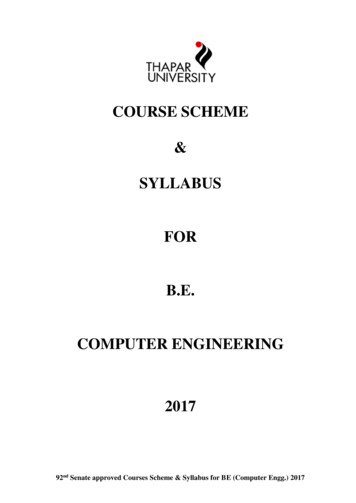
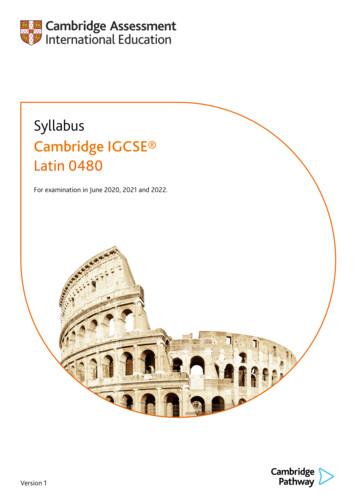
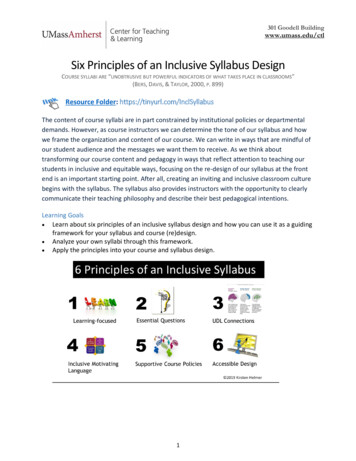
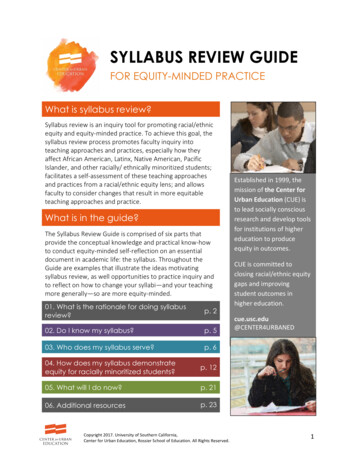
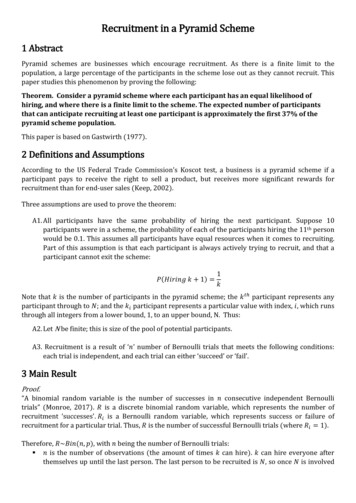
![[Title to come] DSP Dynamic Asset Allocation Fund](/img/24/dsp-dynamic-asset-allocation-fund.jpg)
